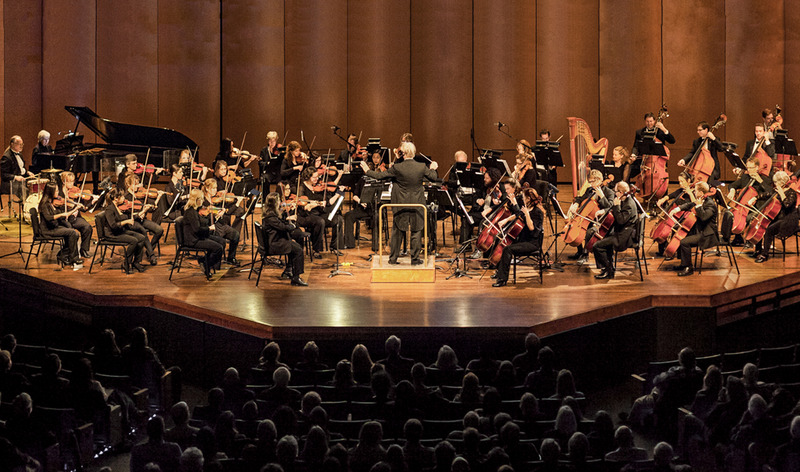The Local newsletter is your free, daily guide to life in Colorado. For locals, by locals.
When a familiar song plays, you can probably recall where you first heard the melody as easily as you can sing the lyrics. That’s because music is thought to trigger memories, a potentially important connection for the 92,000 Coloradans who are projected to be diagnosed with Alzheimer’s disease by 2025. Colorado State University researchers decided to test the theory by inviting 30 Fort Collins and Loveland residents with Alzheimer’s and other forms of dementia (plus their caregivers) to attend five of the Fort Collins Symphony’s 2015-’16 Masterworks concerts—a program the researchers dubbed B Sharp. What happened next provides hope for new music-based treatments for dementia patients.
Memory Lane
Many of the B Sharp caregivers have reported that their loved ones brought up the concerts several days later—a breakthrough for people who can’t usually recall yesterday’s events. The concerts seem to have “activated” long-term memory as well; after attending a Masterworks show, one woman’s husband told her about how he played the trumpet as a teenager.
Face The Music
Multiple couples from the study are now turning to music as a communication tool in their everyday lives. One caregiver puts on tunes to calm her husband when he gets frustrated and confused. “It alters his thinking so he can engage in a more meaningful way,” says Jeni Cross, a B Sharp principal investigator and associate sociology professor at CSU.
Happy Hour(s)
The B Sharp participants answered survey questions before and after each visit to the symphony, but they viewed the shows as social events, not just experiments. The study’s leaders had initially worried about the length and lateness of the concerts, but the patrons rarely went home at intermission because they were having so much fun.
Support System
With the support of the Larimer County Office on Aging, B Sharp committee member Cyndy Luzinski used the study to spur a “dementia-friendly” initiative, which trains local businesses on best practices for interacting with customers who have dementia. The first to receive the program’s dementia-friendly designation was the Lincoln Center, where the Fort Collins Symphony performs.









